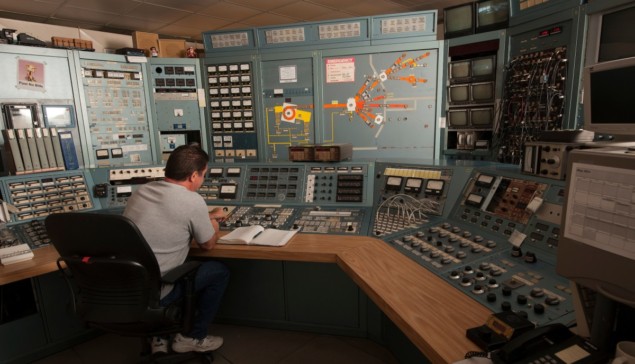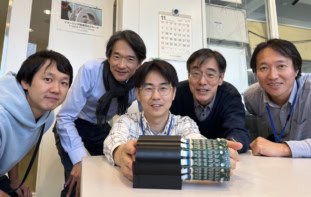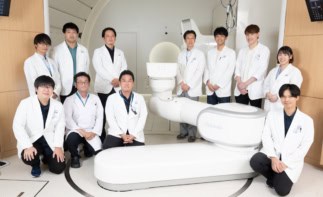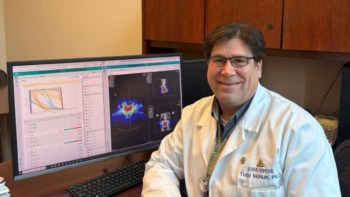
The Crocker Nuclear Laboratory at the University of California, Davis, has received a $340,000 grant from the Department of Energy to manufacture the rare isotope astatine-211 (211At) for potential use in cancer treatment.
211At decays via emission of alpha particles, which travel less than a millimetre in human tissue. This makes it an ideal candidate for targeted alpha therapy, a treatment that delivers radiation directly to cancer cells and minimizes irradiation of healthy tissue. Unfortunately, 211At is not currently available in large enough amounts for clinical testing. Additionally, the isotope’s short half-life of 7.2 hr means that it must be generated and used in the same day.
The new project will test the feasibility of producing 211At at the Crocker Lab’s cyclotron — the main magnet of which was originally part of the UC Berkeley cyclotron used to discover astatine back in 1940.
“We are excited to again make medically useful isotopes at the Crocker Nuclear Laboratory,” says lab director Eric Prebys. “It’s exciting to find new uses for this cyclotron, particularly one that calls back to its origins.”
The scientists will produce 211At by bombarding bismuth-209 with alpha particles. They note that the Crocker Lab’s 76-inch cyclotron, which began operation in 1966, is one of the few in the USA that can produce an intense enough alpha particle beam to create 211At. It achieves this by using a magnetic field to guide charged particles along a spiral path and accelerate them to high energies.

Tumour growth models shed light on radionuclide therapy
The Crocker Lab has extensive experience in creating medical isotopes. In 1972, UC Davis scientists developed a new method for making iodine-123, a thyroid cancer diagnostic tool now available commercially. The lab has produced nearly 25 different medically useful isotopes over the years, but the cyclotron has not been used to produce isotopes since the 1990s.
The Department of Energy grant will fund the design and construction of new equipment to prove the feasibility of production and recovery of 211At at the Crocker Lab. In future, Prebys and colleagues plan to seek funding for full-scale production of the isotope.



